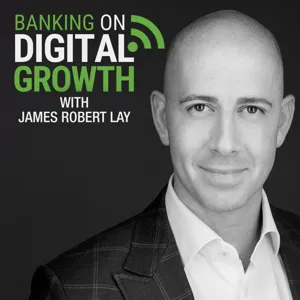Podcast Summary
The demise of traditional Odd Lots trading desks: Traditional Odd Lots trading desks, handling small and irregular orders, may disappear, but overall capital markets will continue to function.
The traditional Odd Lots trading desks, which handle small and irregular orders for stocks and bonds, may be disappearing as JPMorgan and Citigroup have recently announced their closure. Principal Asset Management, a real estate firm, exemplifies the importance of a comprehensive perspective in identifying investing opportunities, combining local insights with global expertise. Meanwhile, on the Odd Lots podcast, hosts Tracy Alloway and Joe Isenthal discussed the potential end of lowercase "odd lots" trading desks, explaining how these desks catered to irregular orders and their potential disappearance. Their guest, Chris White, a recurring Odd Lots podcast guest and former Goldman Sachs employee, shed light on the reasons behind this change. The shift in the market could impact how small orders are processed, but the overall capital markets will continue to function as usual.
Removing human traders from odd lots trades in corporate bond market: Institutional investors demand odd lots during rebalancing, retail investors make up less than half of a percent of daily volume, human traders have been removed from these trades for a few years, and it's essential to clarify the misconception about the end of odd lots trading
The recent news about the end of Odd Lots trading desks at JPMorgan and Citi does not mean the end of trading odd lots in the corporate bond market. Instead, it's about removing the human element from these trades. Odd Lots, which are smaller or irregularly sized trades, are demanded primarily by institutional investors during rebalancing. Retail investors make up less than half of a percent of daily volume in the corporate bond market. The distinction between odd lots and micro lots can depend on the specific bond being traded and its outstanding size. The misconception arises because of the recent headlines about JPMorgan and Citi, but the practice of removing human traders from these trades has been ongoing for a few years, as Goldman Sachs did it around 2-3 years ago. It's essential to clarify this misconception to maintain an accurate understanding of the corporate bond market and its trading practices.
The Phasing Out of Traditional Odd Lots Trading Desks: Traditional Odd Lots trading desks, which handled small trades in the corporate bond market, are being replaced by automated and technology-driven trading solutions due to advancements in technology and changing market dynamics.
The traditional Odd Lots trading desks in the corporate bond market are being phased out due to advancements in technology and changing market dynamics. These desks, which handled small trades that couldn't be executed through normal channels, accounted for a significant amount of trading activity but only a small percentage of the total volume. The primary reason for their existence was the dominance of RFQs, an electronic phone call system, and the popularity of list trading, which involved submitting lists of individual bonds for trading. However, with the growth of passive funds and the increasing efficiency of electronic trading systems, it has become less profitable for banks to maintain these desks. Instead, they are moving towards more automated and technology-driven trading solutions.
ETFs' Growing Role in Fixed Income Electronic Trading: ETFs' AUM in fixed income sector surpassed 1 trillion dollars due to popularity of bond index baskets and shift to all-to-all RFQ trading systems, leading to increased competition and automation in the market.
The role of Electronically Traded Funds (ETFs) in the electronic trading market has been growing significantly, especially in the fixed income sector. The recent surge in Assets Under Management (AUM) for fixed income ETFs has surpassed the 1 trillion dollar mark. This growth is due to the increasing popularity of trading baskets of bonds that represent an index. Additionally, the shift from traditional buy-side to all-to-all Request for Quotes (RFQ) trading systems has led to greater competition and more participants in the market. This change has come about due to the decreasing profitability of market making in odd lots for major banks and the low-quality order flow on these platforms. Despite this, some argue that human beings on the sell side should still be handling odd lot trading in a manual fashion due to the potential for certain trading styles to disappear in the more competitive market. Overall, the electronic trading landscape is becoming more competitive and automated, leading to changes in traditional trading practices.
Running an Odd Lot desk in corporate bonds requires a large balance sheet: A successful Odd Lot desk in corporate bonds necessitates a substantial balance sheet, usually over $200 million, due to slow bond turnover. Alternatives like all-to-all trading offer tighter spreads but may not provide the same level of liquidity as dedicated desks.
Running a successful Odd Lot desk in the corporate bond market requires a substantial balance sheet, typically $200 million or more, due to the slow turnover of bonds. This means that dealers must hold positions and balance various considerations, such as whether the balance sheet would be better utilized elsewhere or if the trader's human judgment would be more effective in other areas. The rise of all-to-all trading, where buy-side players can trade directly with each other, is an alternative that aims to cut out intermediaries and offer tighter spreads. However, the all-to-all environment may not provide the same level of liquidity as dedicated desks with balance sheets, and it's currently responsible for less than 2% of average daily market share based on MarketAxess' numbers. Additionally, the details of what is trading on a buy-side to buy-side basis are not publicly available, and it's likely that the easier-to-trade bonds are the ones being transacted. While buy-side to buy-side trading can be helpful, it may not address the liquidity issues in the market, as these issues typically arise when trying to trade large volumes of infrequently traded securities.
Bond market's growth and reliance on cheap debt: Despite the popularity of electronic trading platforms, addressing underlying risks and systemic issues in the bond market is crucial to prepare for potential crises.
While electronic trading platforms have become increasingly popular in the bond market, they may not be the solution to the systemic risks and potential crisis that some experts warn about. The bond market has grown significantly since 2008, with a larger and riskier universe of triple B credits and longer durations. Central banks' policies, including quantitative easing, have created an environment where many companies rely on cheap debt to finance themselves. When central banks attempt to normalize their policies, there could be a cascading effect on the market, leading to pronounced volatility. During such events, large positions may not be traded on electronic platforms, making it uncertain if they will provide relief to the market. Instead, it's crucial to address the underlying risks and systemic issues in the bond market to prepare for potential crises.
Improving corporate bond trading reliability with high-quality data: High-quality pre-trade data is crucial for market makers to offer reliable institutional liquidity and manage risk effectively, leading to improved market reliability and liquidity in the next 5-10 years.
The reliability and liquidity of corporate bond trading is expected to improve significantly in the next 5-10 years, and the key to achieving this lies in the availability of high-quality, pre-trade data. Consolidated quotes, which provide readily accessible market data, are essential for reducing ambiguity and enabling market makers to offer reliable institutional liquidity. Market makers need this information to properly calibrate their prices and manage risk, ensuring they remain competitive and viable players in the market. Modernized markets, where market makers have access to prevailing prices from other market participants, demonstrate the importance of this apparatus in enabling market makers to trade with confidence and offer better returns on their balance sheets. Without this visibility into the market, market makers are at a disadvantage when responding to trade requests, leading to a lack of reliable institutional liquidity.
Dealers in the corporate bond market will become more data-driven: Dealers in the corporate bond market will adopt a data-driven business model to manage risk and inventory effectively, reduce forced sales, and respond to declining revenues.
Dealers in the corporate bond market will become more data-driven in the next 5 to 10 years due to environmental shifts and the need to manage risk and inventory effectively. With access to comprehensive pricing information, dealers can make informed decisions on where to offer bonds consistently and reduce the risk of forced or panicked sales. The declining revenues in US corporate bond market making serve as evidence of the need for change. The sell side is expected to adopt a data-driven business model in response to these challenges. Chris, a frequent guest on Odd Lots, emphasized the importance of data for dealers in managing their positions and rethinking their business models. The conversation between Joe and Chris highlighted the significance of discussing market structure, particularly in the context of the corporate bond market.
Market structure and technology don't fully solve underlying issues in corporate bond market: Market improvements help at the margins, but a deep understanding of market risks is crucial
While market structure and technology can facilitate easier trading and access to information in the corporate bond market, they do not solve the underlying issues of market risk and the diversity of assets. Prices in the market are not just numbers on a screen, but the result of a complex process that requires human intervention. Additionally, the growth and increased riskiness of the junk bond market, specifically the triple B portion of the investment grade market, should be closely watched for potential crises. Market structure improvements can help at the margins, but a fundamental understanding of the market and its risks is essential.






